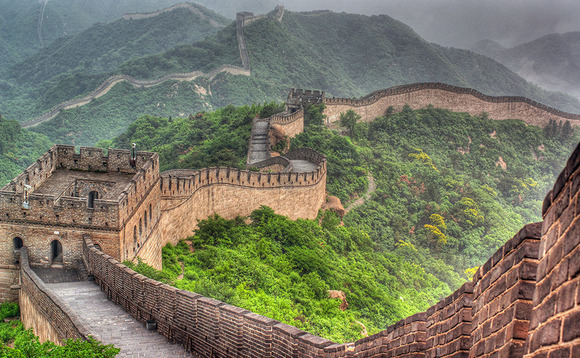
Defensive Sino-French approach holds strong in France

Faced with post-crisis static GDP growth rates, a number of French GPs have sought growth in thriving China. As the Asian giant witnesses a slowdown, has the strategy lost any of its appeal? José Rojo investigates
Commentators may roll their eyes at France's unimpressive 0-2% GDP growth rate in recent years, but there was a time when the country shrank at a quarterly 4%. Small wonder then, that against this backdrop, many French GPs have eyed China's former 10-14% GDP growth rate with envy. However, as Edouard Moinet learned before co-founding Cathay Capital in 2006, expanding into China is far from an easy ride for a European manager.
Moinet was an investment director at Siparex when he met Chinese entrepreneur Mingpo Cai. "One of the Siparex portfolio companies was about to bolt-on a Chinese business and we experienced some challenges in understanding how local managers thought and worked. Mingpo helped us overcome those barriers," he tells unquote".
The experience convinced both Moinet and Cai of the value that lies in bridging that cultural gap. In 2006, Cathay was created on that very premise and has since helped European and Chinese SMEs navigate the opposing markets. Symbolism permeates every aspect of Cathay: the firm splits its investments equally between Europe and China, and entrepreneurs, institutional investors and state backers have each provided an exact third of Cathay's current €1.5bn under management.
Wary of direct forays into China, institutional LPs took a little longer to come on board but Cathay eventually recruited BNP Paribas Cardif, Crédit Agricole and Amundi, among others.
While our peers often have to go through auctions and intermediaries, CEOs and private equity funds come to see us about their Chinese expansion plans" – André Loesekrug-Petri, ACapital
André Loesekrug-Petri, who founded Sino-European investor ACapital in 2012, recalls similar difficulties enlisting institutional LPs in the firm's early days: "When we raised our first fund, they were intellectually interested but preferred to wait and see what our performance was. Meanwhile, we've had LPs coming to see us for our second fund before even going to market."
Unlike Cathay, ACapital focuses exclusively on European SMEs looking to grow in China. At a €5-20m equity ticket, the firm has so far concentrated on a small pool of assets – it currently holds three stakes in France and one in Denmark – but the Chinese approach makes deal sourcing a breeze, according to Loesekrug-Petri: "While our peers often have to go through auctions and intermediaries, CEOs and private equity funds come to see us about their Chinese expansion plans."
Sector selector
As company strategies increasingly rank international scale-up as a core element, which Chinese sectors should GPs stick to as they seek the growth France cannot always provide? Moinet and Loesekrug-Petri both highlight healthcare in a rapidly aging China; pollution control, a key concern in Chinese smog-ridden cities; food production and quality; home equipment for the annual 15 million Chinese who become urban dwellers; and lifestyle and brands for the emerging middle class. "Regardless of the slowdown, these needs among the Chinese population are here to stay and will continue to deliver strong growth," says Moinet.
Coupled with the stock market crash in the summer, China's 6.9% GDP growth in 2015, the lowest in 25 years, has sparked an undercurrent of unease among investors. According to Moinet, the slump need not spell bad news for private equity: "As an investor, identifying the right teams and strategies is far easier in an economy that is cooling down, reaching maturity."
Having swollen enormously during the 12-13% growth years, many Chinese sectors now show signs of overcapacity, previously with no private equity model to lead the consolidation wave to reshape the markets. Says Moinet: "The young Chinese economy is entering a phase of transition, of M&A and reorganisation. This creates a huge momentum for private equity to invest, but also to sell. The key will lie in picking the best management teams, those around which the rest will gravitate."
Miracle workers
"During the good years, it was all about the Chinese miracle, the infinite market where everyone succeeded no matter what," says ACapital's Loesekrug-Petri. "We witnessed quite a bit of opportunism in the last few years, with many funds suddenly announcing huge schemes for China. Today, it has all become a market share play and there will be winners and losers."
According to ACapital's co-founder, the Chinese slowdown has paradoxically vindicated the firm's decision to steer clear of investments in the Asian country: "When we launched our first fund, some raised their eyebrows, asked why we wouldn't allocate any of our money to China. Nowadays, many see that the key is investing in European companies – companies whose management, governance and culture one can clearly understand – and to have them grow abroad, especially in China."
Latest News
Stonehage Fleming raises USD 130m for largest fund to date, eyes 2024 programme
Sponsor acquired the public software group in July 2017 via the same-year vintage Partners Group Global Value 2017
Stonehage Fleming raises USD 130m for largest fund to date, eyes 2024 programme
Czech Republic-headquartered family office is targeting DACH and CEE region deals
Stonehage Fleming raises USD 130m for largest fund to date, eyes 2024 programme
Ex-Rocket Internet leader Bettina Curtze joins Swiss VC firm as partner and CFO
Stonehage Fleming raises USD 130m for largest fund to date, eyes 2024 programme
Estonia-registered VC could bolster LP base with fresh capital from funds-of-funds or pension funds









